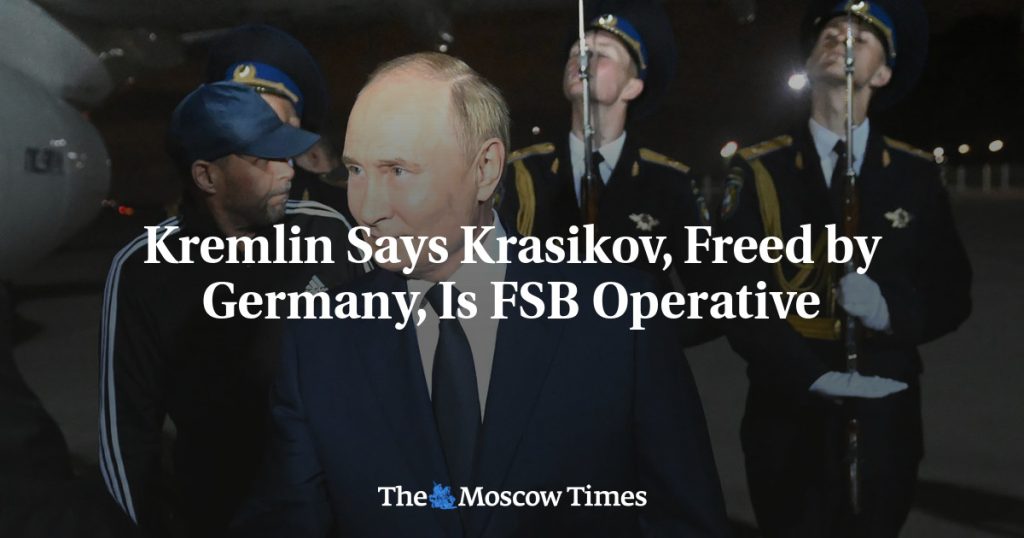On Friday, the Kremlin confirmed that Vadim Krasikov, who was freed by Germany in a prisoner swap deal with the West, is an operative with Russia’s FSB security service. Krasikov, who served in the FSB’s elite “Alpha” unit, was serving a life sentence in Germany for the murder of a Chechen rebel commander in 2019. The assassination was found to have been ordered by the Russian state. This confirmation marks the first time Moscow has publicly acknowledged Krasikov’s role as an FSB agent. Kremlin spokesman Dmitry Peskov also mentioned that Krasikov had served with individuals in the president’s security detail.
In addition to Krasikov, a Russian couple released from Slovenia as part of the prisoner exchange were also confirmed to be spies. Artem Dultsev and Anna Dultseva had been posing as an Argentine couple running an IT business and art gallery in Ljubljana. The couple’s two children, who were also sent to Russia in the exchange, were unaware of their Russian heritage until they boarded the plane back to Moscow. These individuals, referred to as “illegals,” are undercover spies who live in foreign countries under false identities for extended periods, collecting intelligence for Moscow.
It was revealed that the children of the Russian couple released from Slovenia only found out they were Russian while on the plane from Ankara. Despite not speaking Russian, they were greeted by President Putin in Spanish when they arrived in Moscow. The prisoner exchange, which was called historic, involved the release of eight Russian prisoners and two children. In return, Moscow released several U.S. citizens, along with Russian dissidents and activists. Putin emphasized that the “Motherland never forgot about you” in reference to the returning prisoners, some of whom had direct ties to the military.
The release of Krasikov and the Russian spy couple sheds light on the covert operations conducted by the FSB in foreign countries. The existence of undercover spies, known as “illegals,” highlights the lengths to which Russia goes to gather intelligence abroad. The confirmation by the Kremlin of Krasikov’s affiliation with the FSB underscores the close relationship between the security service and the Russian state. The prisoner exchange serves as a diplomatic gesture between the West and Russia, showcasing the complexities of international relations and intelligence operations.
The involvement of FSB operatives in high-profile incidents, such as the assassination in Berlin, raises questions about Russia’s role in such covert activities. The confirmation of Krasikov’s FSB ties provides insight into the agency’s reach and influence both domestically and internationally. The reunion of the released individuals with their families and homeland highlights the personal and emotional toll of espionage and imprisonment. The exchange of prisoners between Russia and Western countries demonstrates a willingness to engage in diplomatic solutions, even in the face of contentious issues surrounding security and intelligence.
Overall, the confirmation of Vadim Krasikov’s FSB affiliation, along with the revelation of the Russian spy couple’s identities, sheds light on the intricacies of intelligence operations and international espionage. The prisoner exchange between Russia and the West showcases the complexities of diplomatic relations, security concerns, and the personal impact of espionage on individuals and their families. The involvement of FSB operatives in covert activities abroad underscores the challenges faced by intelligence agencies in maintaining national security while navigating global politics. The historic nature of the exchange serves as a reminder of the delicate balance between security, diplomacy, and human rights.


